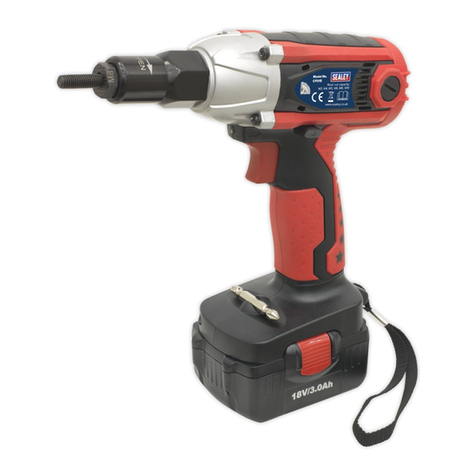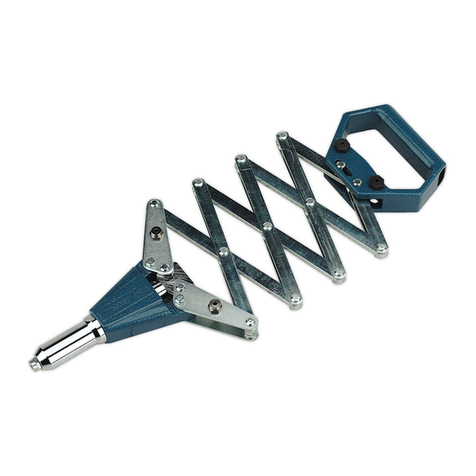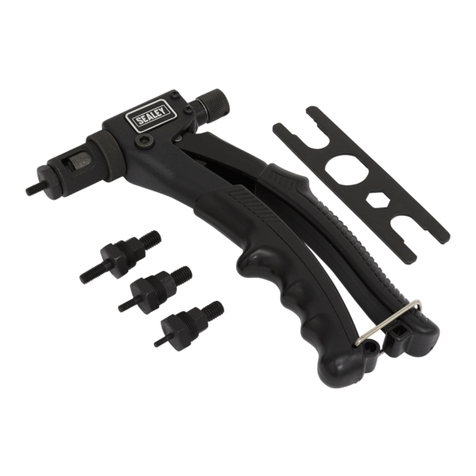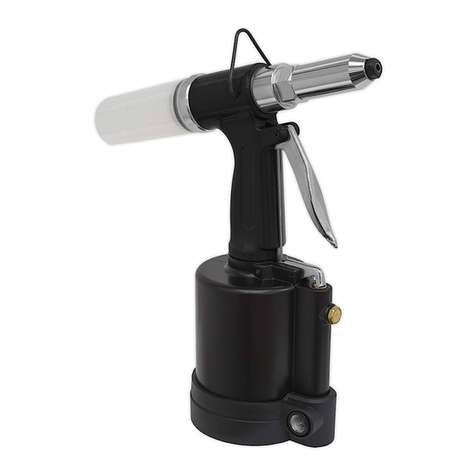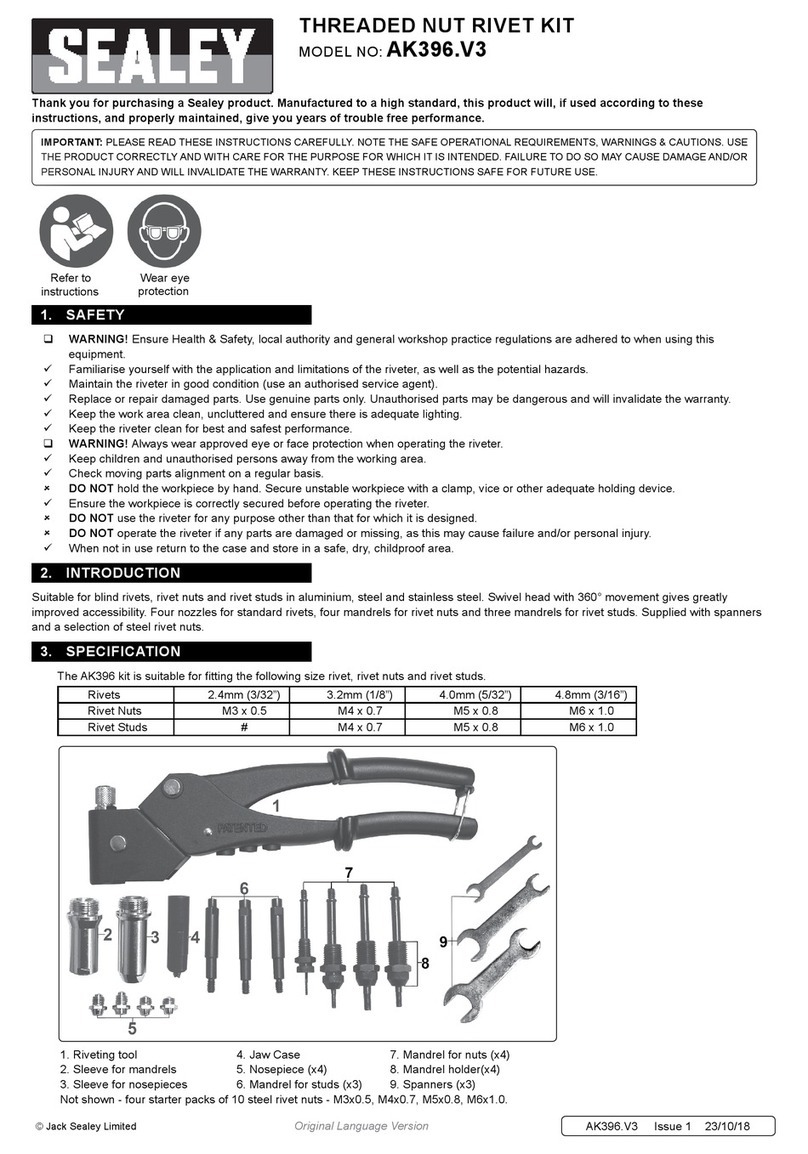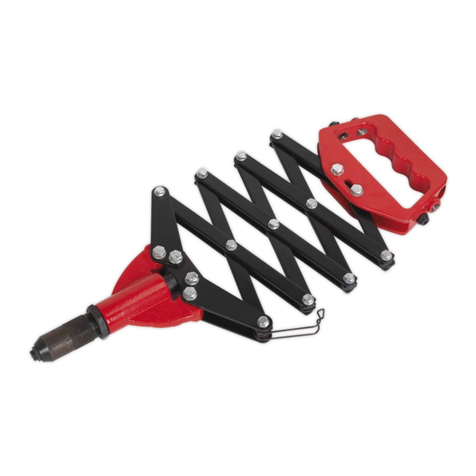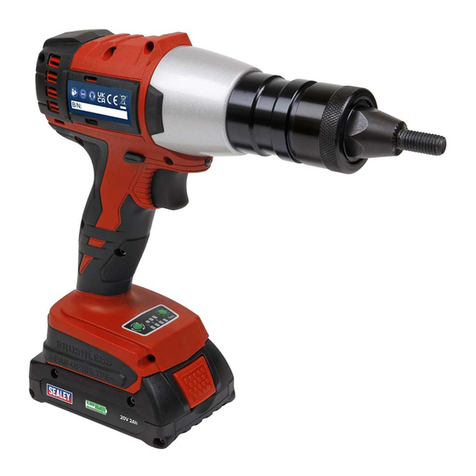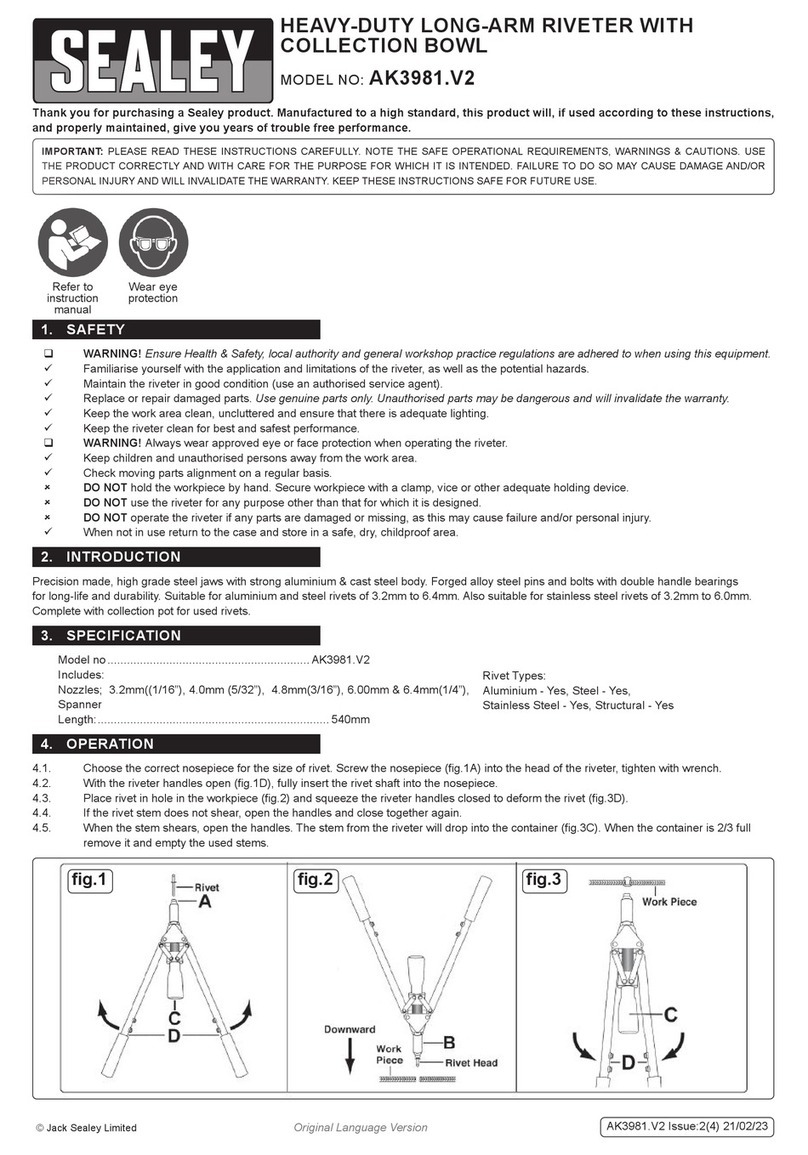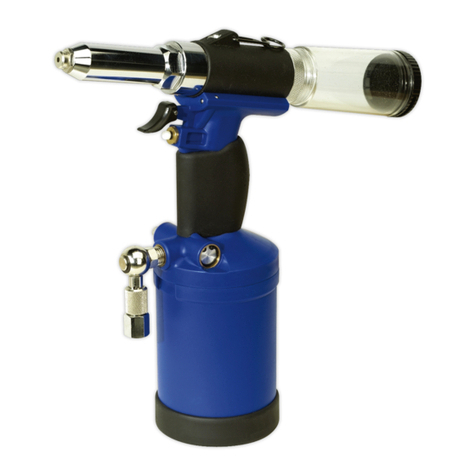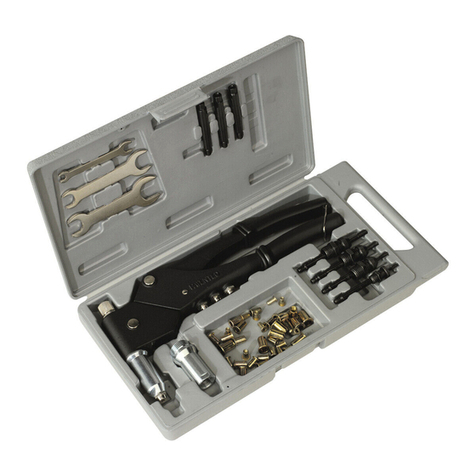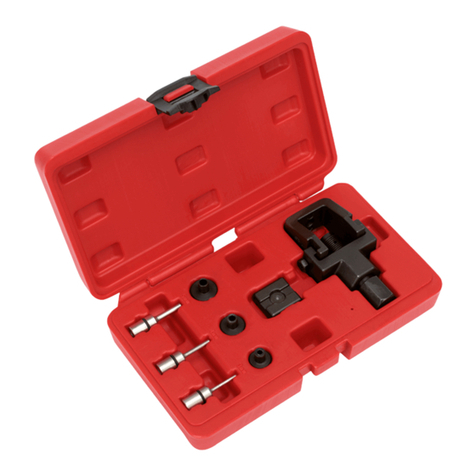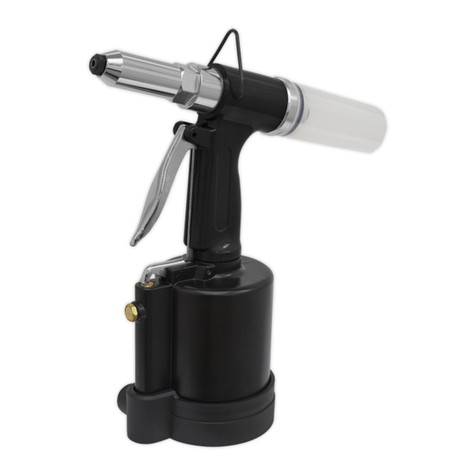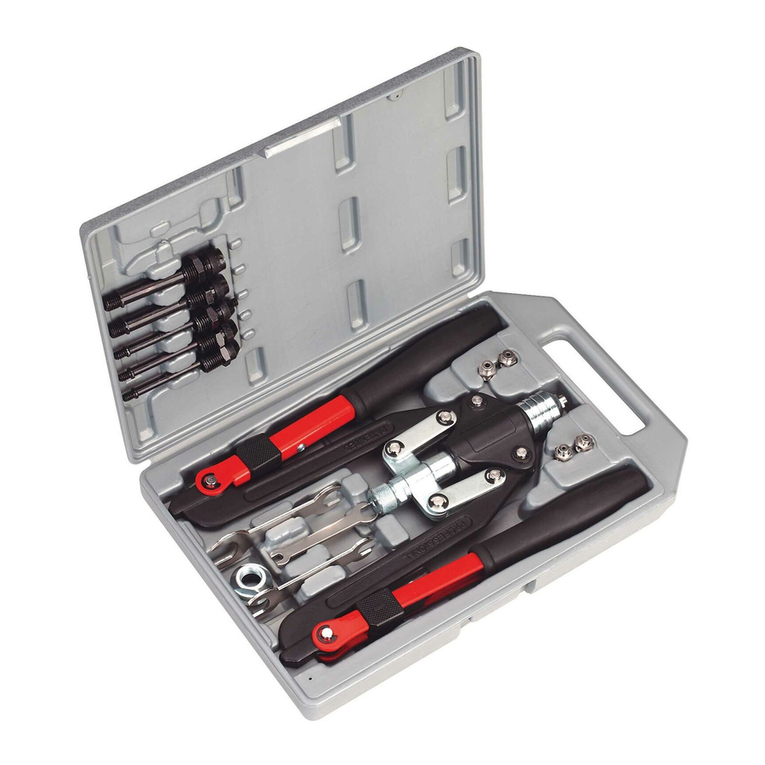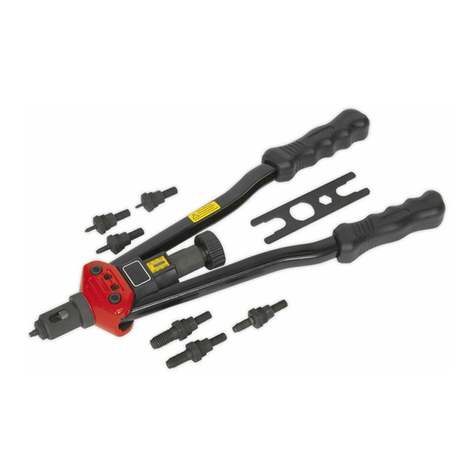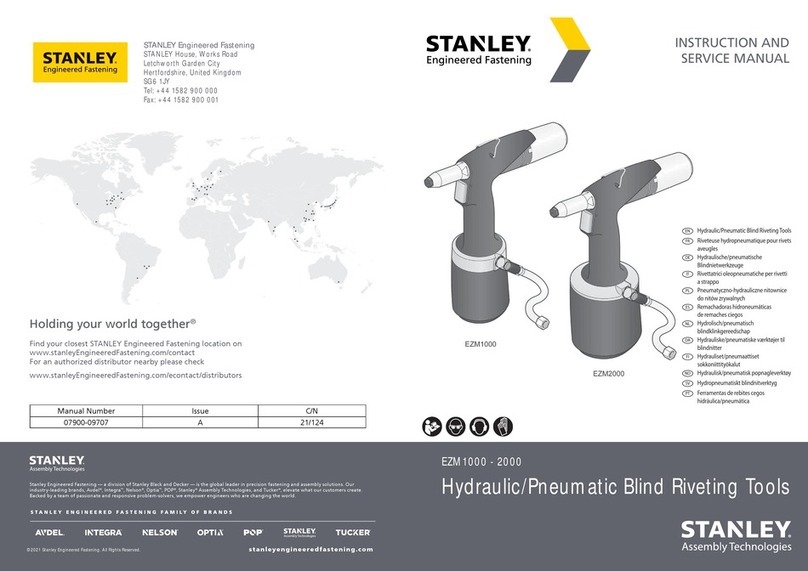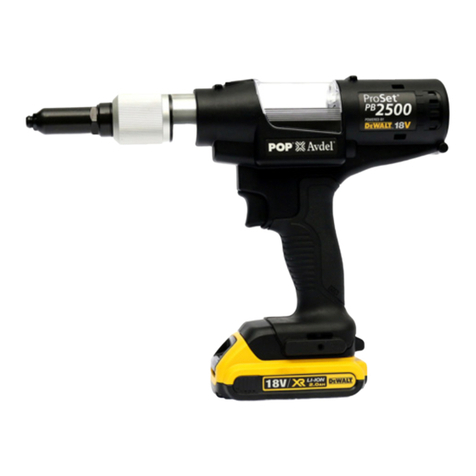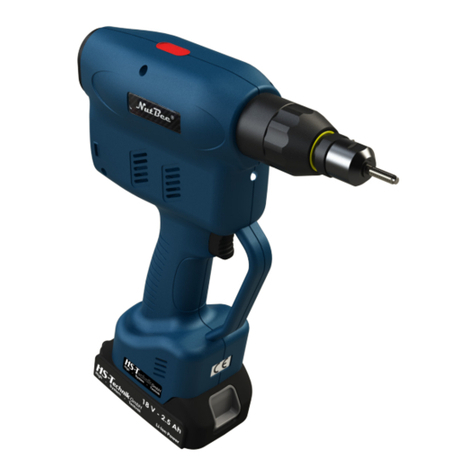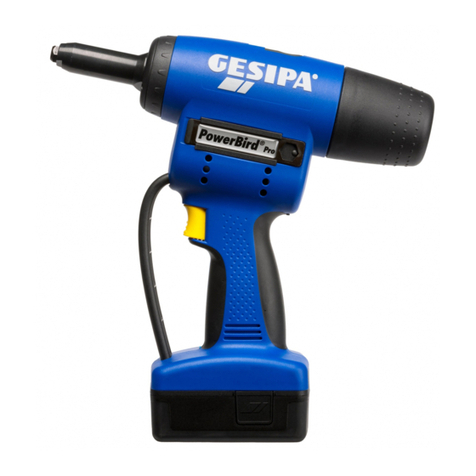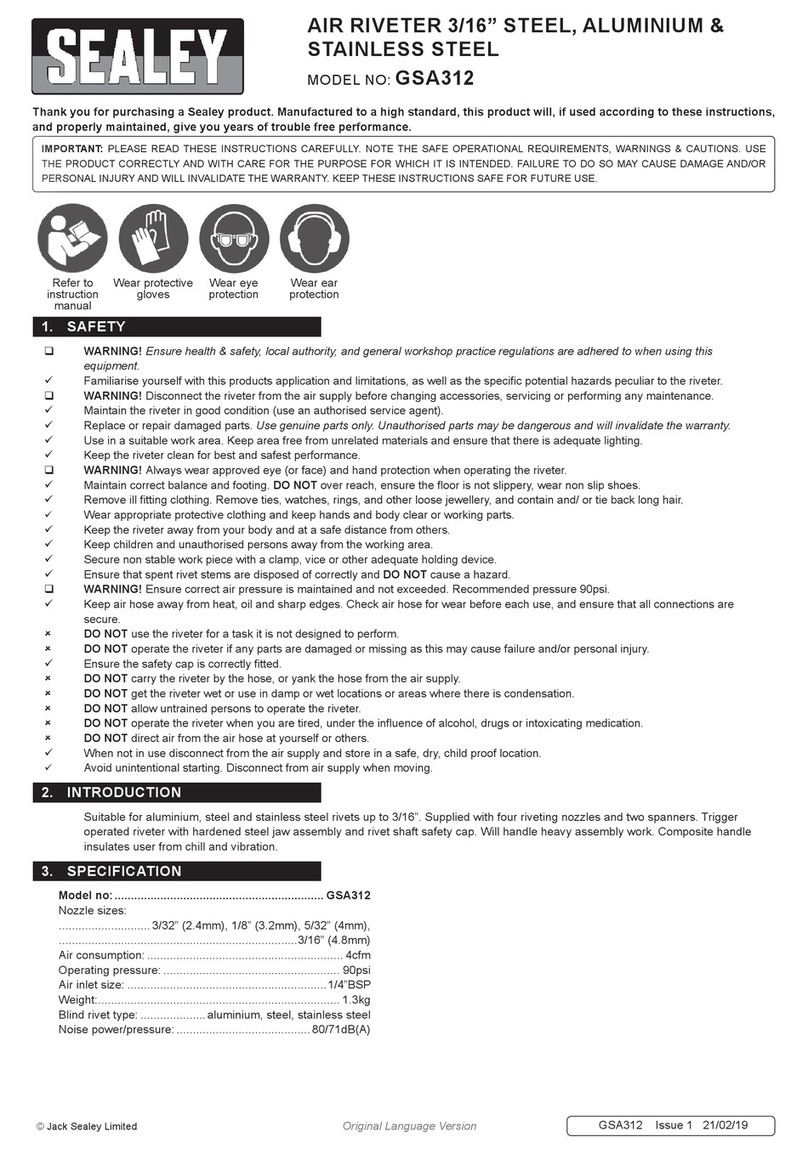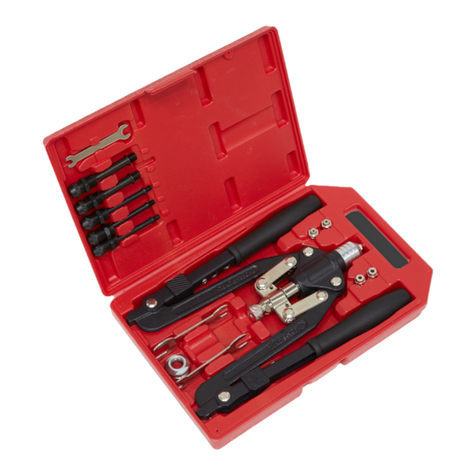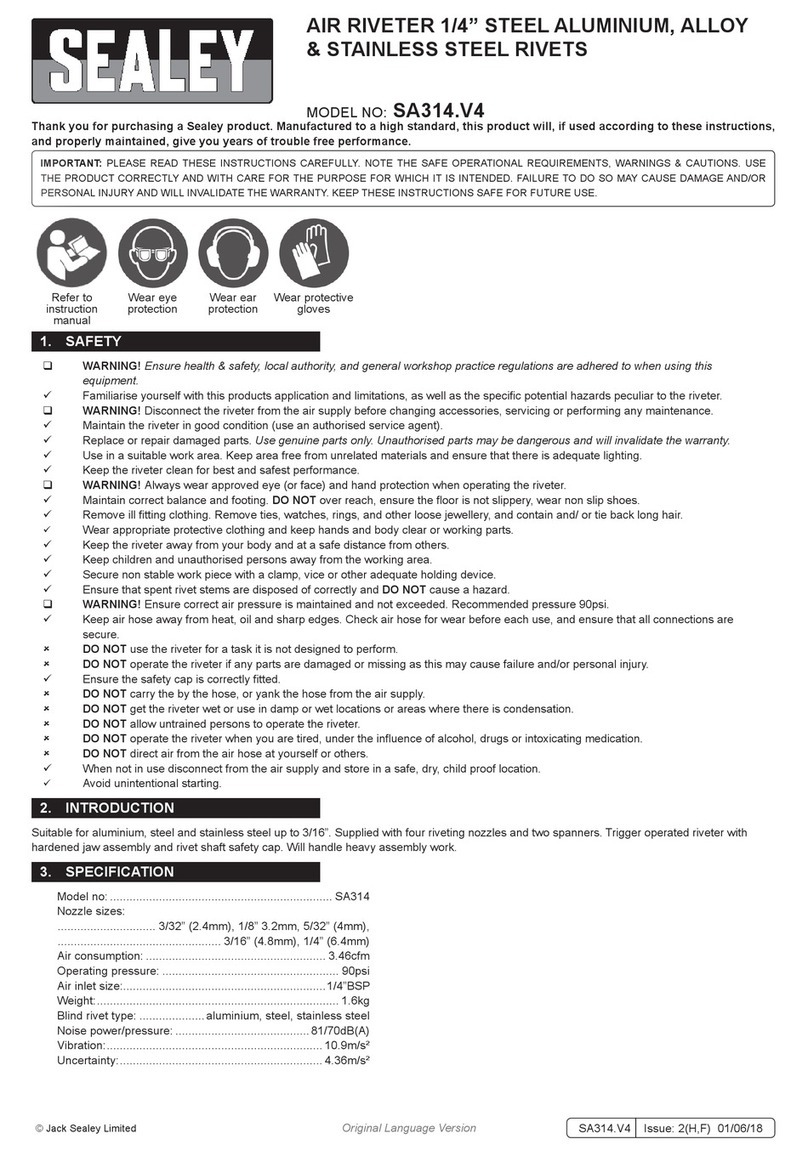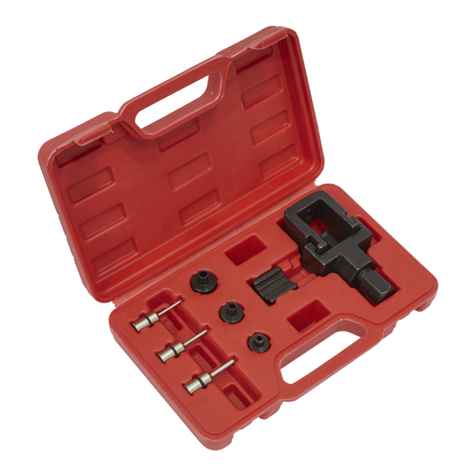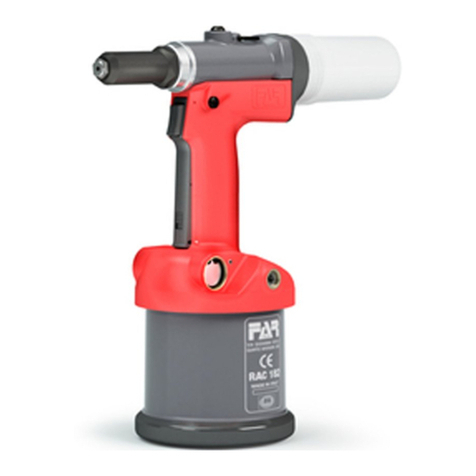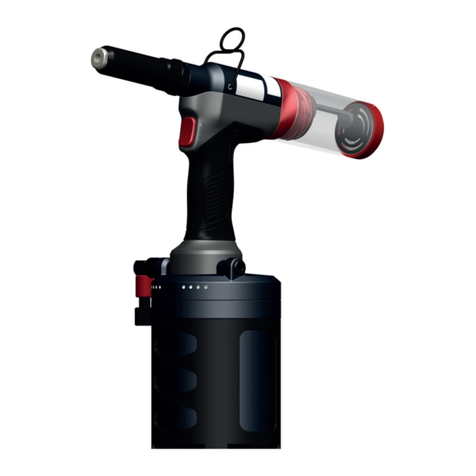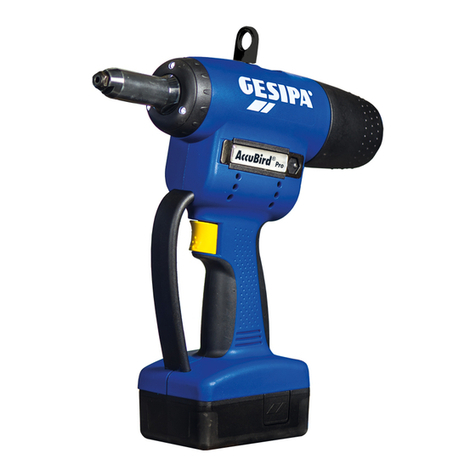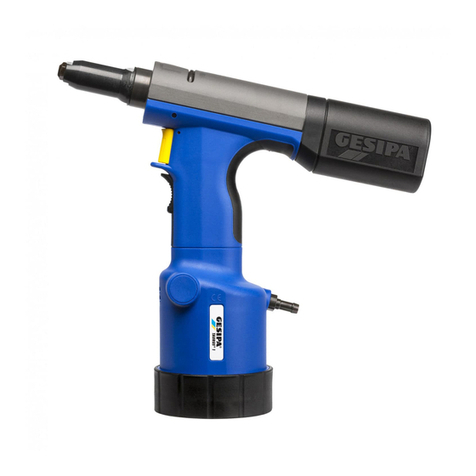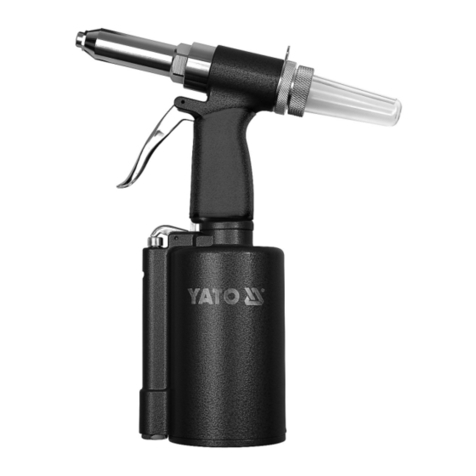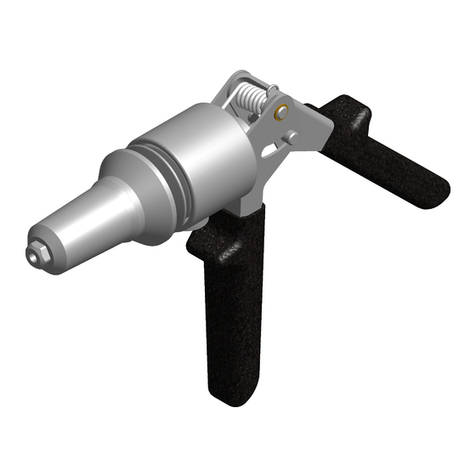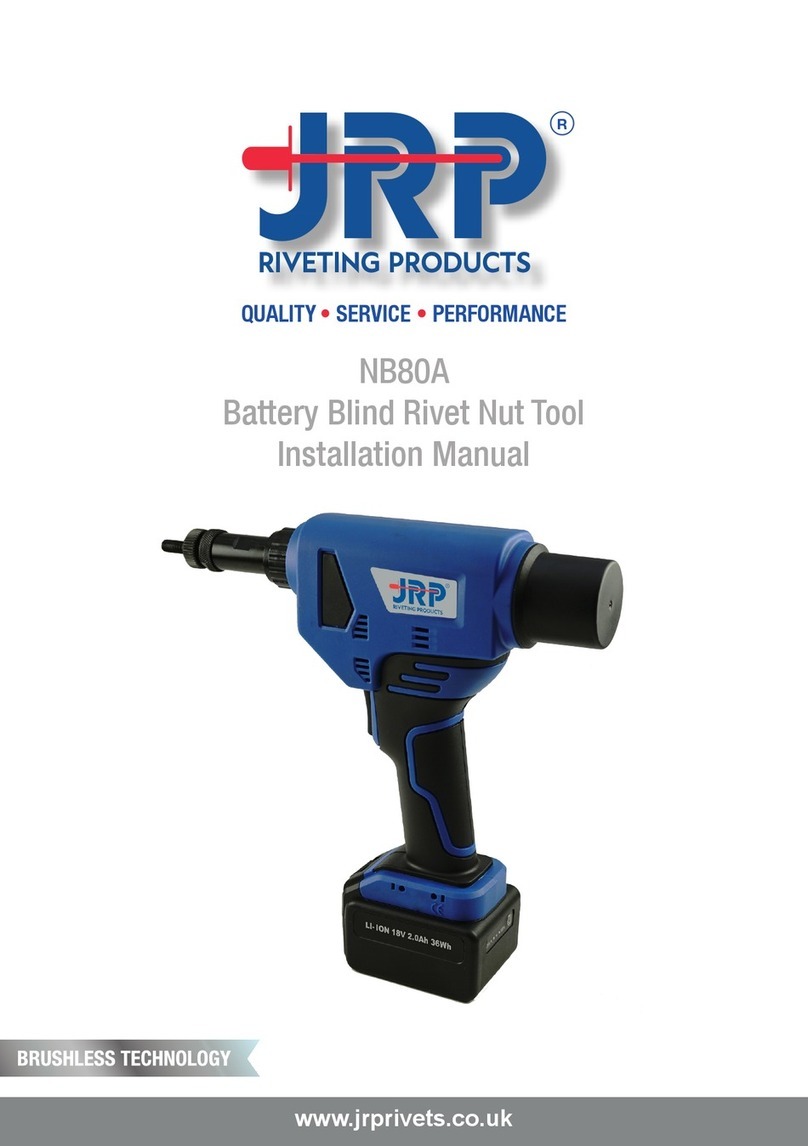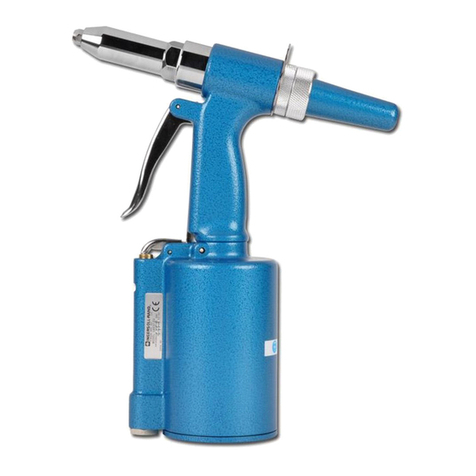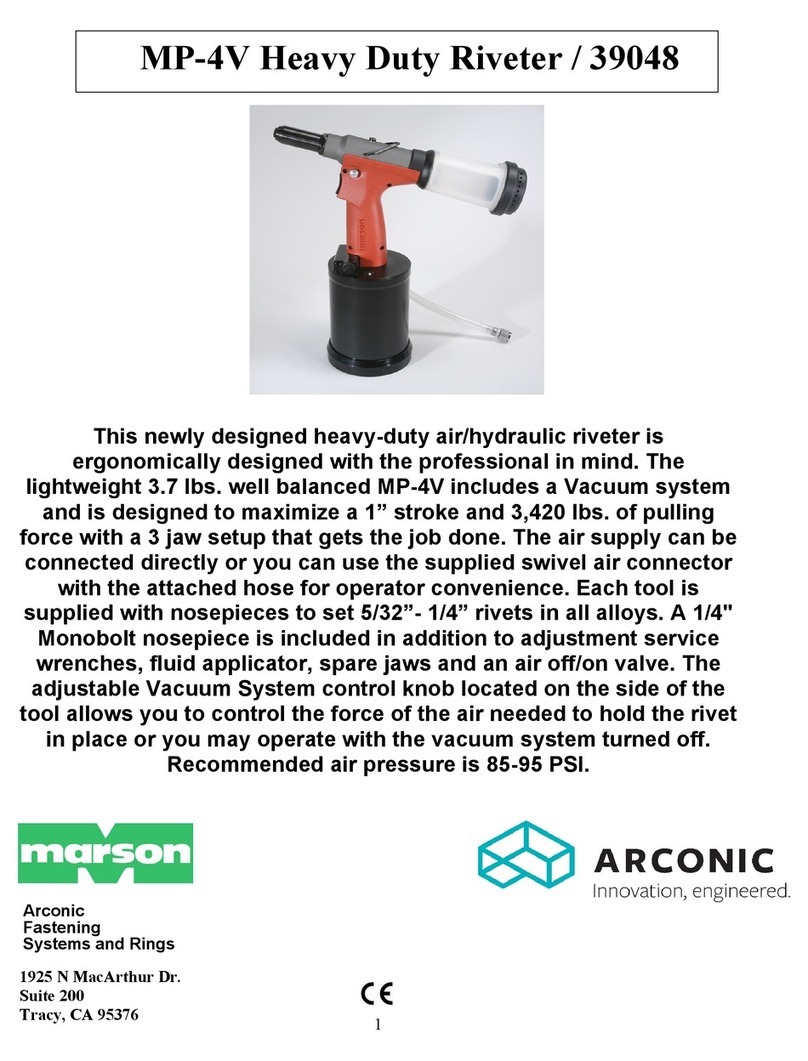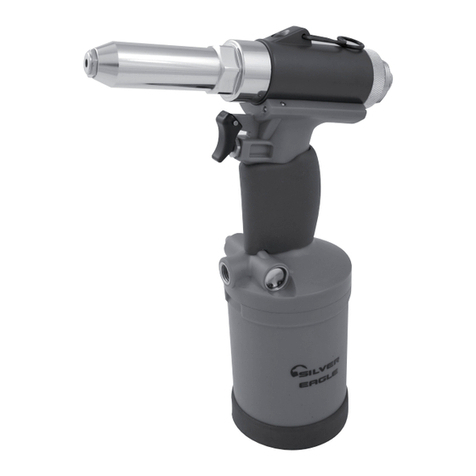
AIR/HYDRAULIC RIVETER
MODEL NO: SA31.V3
Thank you for purchasing a Sealey product. Manufactured to a high standard, this product will, if used according to these
instructions, and properly maintained, give you years of trouble free performance.
IMPORTANT: PLEASE READ THESE INSTRUCTIONS CAREFULLY. NOTE THE SAFE OPERATIONAL REQUIREMENTS, WARNINGS & CAUTIONS. USE
THE PRODUCT CORRECTLY AND WITH CARE FOR THE PURPOSE FOR WHICH IT IS INTENDED. FAILURE TO DO SO MAY CAUSE DAMAGE AND/OR
PERSONAL INJURYAND WILL INVALIDATE THE WARRANTY. KEEP THESE INSTRUCTIONS SAFE FOR FUTURE USE.
1. SAFETY
WARNING! Ensure that Health & Safety, local authority and general workshop practice regulations are adhered to when using this equipment.
9Familiarise yourself with the applications, limitations and potential hazards peculiar to the riveter.
WARNING! Disconnect the riveter from the air supply before changing accessories, servicing or performing any maintenance.
9Maintain the riveter in good condition (use an authorised service agent).
9Replace or repair damaged parts. Use genuine parts only. Unauthorised parts may be dangerous and will invalidate the warranty.
9Keep the work area clean, uncluttered and ensure that there is adequate lighting.
9Keep the riveter clean for best and safest performance.
WARNING! Always wear approved eye or face protection when operating the riveter.
9Maintain correct balance and footing. Ensure the floor is not slippery and wear non-slip shoes.
9Remove ill fitting clothing. Remove ties, watches, rings and other loose jewellery and contain, and/or tie back, long hair.
9Keep the riveter away from your body and at a safe distance from others.
9Keep children and unauthorised persons away from the work area.
9Secure unstable workpiece with a clamp, vice or other adequate holding device.
9Ensure that spent rivet stems are disposed of correctly and do not cause a hazard.
WARNING! Ensure that the correct air pressure is maintained and not exceeded.
9Keep air hose away from heat, oil and sharp edges. Check air hose for wear before each use and ensure that all connections are secure.
8DO NOT use the riveter for any purpose other than that for which it is designed.
8DO NOT use the riveter if the safety cap is not in place.
8DO NOT operate the riveter if any parts are damaged or missing and ensure that the safety cap is correctly fitted.
8DO NOT carry the riveter by the hose, or yank the hose from the air supply.
8DO NOT get the riveter wet or use in damp or wet locations or areas where there is condensation.
8DO NOT allow untrained persons to operate the riveter.
8DO NOT point or fire the riveter at people or animals.
8DO NOT operate the riveter when you are tired or under the influence of alcohol, drugs or intoxicating medication.
8DO NOT direct air from the air hose at yourself or others.
9When not in use disconnect from the air supply and store in a safe, dry, childproof area.
9Always connect a leader hose to the rivetter with a permanent coupling.
2. INTRODUCTION
Powerful tool suitable for both aluminium and blind steel rivets up to 3/16”. Supplied with four riveting nozzles and two spanners. Trigger
operated riveter with hardened steel jaw assembly and rivet shaft safety cap.
3. SPECIFICATION
Model No:................................................................SA31.V3
Air Consumption: ...........................................................4cfm
Blind Rivet Type:................Aluminium, Steel, Stainless Steel
Noise Power/Pressure: ........................................80/72dB(A)
Nozzle sizes:..........................................................................
.........3/32”(2.4mm), 1/8”(3.2mm), 5/32”(4mm), 3/16”(4.8mm)
Operating Pressure:...................................................... 90psi
Vibration/Uncertainty:.......................................20.96/1.5m/s²
4. AIR SUPPLY
WARNING! Ensure the air supply is clean and does not exceed 90psi while operating the riveter. Too high an air pressure and unclean
air will cause excessive wear, and may be dangerous, causing damage and/or personal injury.
4.1. Ensure the riveter air valve (or trigger) is not depressed before connecting to the air supply.
4.2. You will require an air pressure between 70-90psi, and an air flow according to the specification above.
4.3. Drain the compressor daily. Water in the air line will damage the riveter and invalidate your warranty.
SA31.V3 Issue:2 (3) 02/08/21
Original Language Version
© Jack Sealey Limited
Refer to
instructions Wear eye
protection Wear protective
gloves Wear ear
protection
